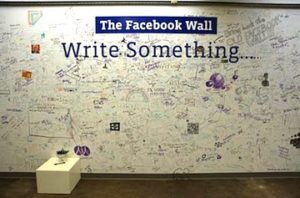Facebook Ban Dismissed For Now
By Talib Qizilbash | News & Politics | Published 14 years ago

Efforts to permanently ban Facebook in Pakistan have been stalled, for now.
The Lahore High Court announced its decision against the requests for an “imposition of a permanent ban” on the social networking website on May 13 (the order was originally issued and reserved on February 28, 2011). Newsline received a copy of the 12-page judgement today (see the link below to download the document).
The petitions and judgement refers specifically to a “competition” last May titled “Everybody Draw Mohammed Day!” that was featured on the popular social media site Facebook. At the time, a furore erupted in Pakistan over that page and its depictions of the Prophet Muhammed (pbuh). The protests and controversy made international headlines around the world. The Islamic Lawyers’ Movement was successful in temporarily blocking access to Facebook in Pakistan last year for several days after arguing that the website offended the sensibilities of Muslims by allowing images that are forbidden under Islamic tenets. Some other countries simply blocked the offending “competition” page. However, under immense pressure to take strong action, the Pakistan Telecommunication Authority ended up blocking access to many other sites as well, including YouTube. The controversy was so heated last year that people who raised their voices against mass censorship were accused of supporting blasphemy and some activists were threatened with death. The court eventually lifted the ban 12 days later.
Now one year later, in dealing with Writ Petition No. 10392 of 2010 initiated by the Islamic Lawyers’ Movement, the LHC also chose to handle two other similar petitions from 2010 (No. 11559 and No. 16615) at the same time. Basically, the petitions urged the court to take further action to rectify the situation. They claimed that publication of “objectionable material,” specifically caricatures and representations of the Prophet Muhammad (pbuh), was immoral and “against the canons of international justice.”
They argued that allowing blasphemous content to be freely disseminated could ignite “ethnic clashes.” And thus, as described by LHC Chief Justice Ijaz Ahmed Chaudhry, the petitioners’ suggestion of a permanent ban on Facebook to stop material that aims “to obliterate the religious harmony amongst followers of different religions.” The petitioners also wanted the court to address the Government of Pakistan’s and the PTA’s alleged poor response in dealing with the contest.
In disposing of the three writ petitions requesting the court to take action, the court would not issue a permanent ban on Facebook. The LHC did, however, hold the government and its agencies responsible for policing the Internet and ordered that the inter-ministerial committee set up to handle grievances related to publicly available information via the media and telecommunications “keep a vigilant eye” on the Internet to look out for “objectionable material,” and “take prompt action before it reaches the public-at-large.” This was just one out of eight guidelines issued in the order. The other items dealt with the need for the government to do the following:
- be active and block offensive websites; the failure to do so could be punishable;
- “agitate the matter before the United Nations”;
- “bring the matter before the OIC” to “halt the repetition of such incidents”;
- explore the viability of permanently banning websites in the event such material is presented again;
- strive for legislation that can allow for the permanent ban of websites, as is done in China;
- create awareness among the public about the “use and misuse” of websites; and
- launch lawsuits against “concerned authorities” if the situation occurs again
Sadly, a repeat of last year could very well happen as pages for the 2011 edition of “Everybody Draw Mohammed Day!” have sprouted on Facebook already. Moreover, the guidelines issued by the court and summarised above set the stage for a government that must consider mass censorship and general Big Brother tendencies necessary tools in the daily governance of the country. And it warns that a failure in its responsibilities will not be tolerated. This gives power to the forces in the country that would like to control what information Pakistanis see, read, hear and share: they can now hold the government responsible for failing to act, and thus compelling it to act over poorly defined “objectionable material.”
The fight against Facebook, and thus the struggle against mass censorship and blanket bans are likely far from over.
Download a copy of the complete LHC order here.
Read more on Facebook and the controversies surrounding it in Pakistan by clicking on the link below:


